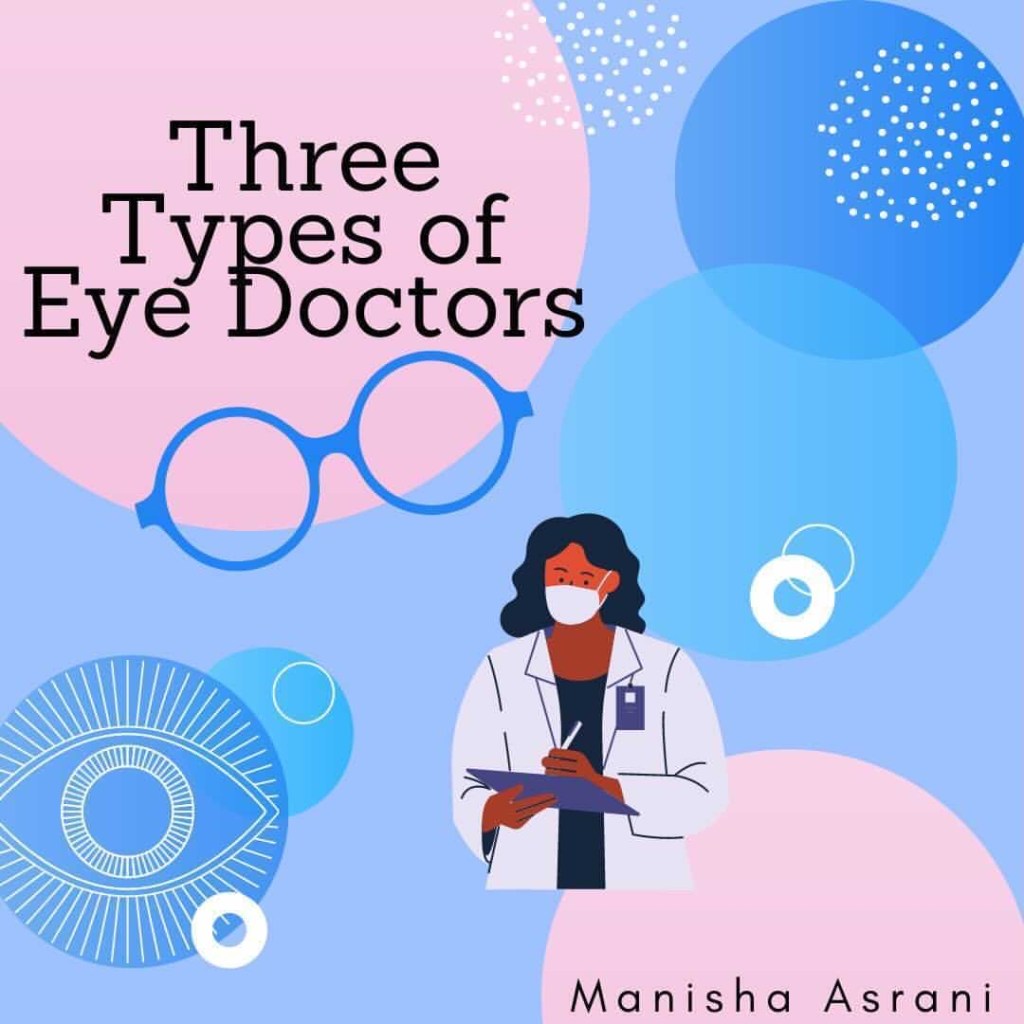Ophthalmology: Introduction to the concept of Ophthalmology and its journey
By: Shania Ali
Ophthalmology is the study of the eyes anatomy, function, and disease. People who specialize in diagnosing and treating these eye conditions are called Ophthalmologists. They are responsible for the treatment and prevention of all eye conditions and visual issues. A person goes to an Ophthalmologist when he or she is experiencing chronic or severe vision symptoms like:
- Excessive tearing
- Unexplained redness in the eye
- Misaligned eyes
- Bulging eyes
- Eyelid abnormalities
- Loss of peripheral vision
Some common eye conditions they treat are:
- Corneal conditions
- Glaucoma
- Cataracts
- Retinal conditions (macular degeneration and diabetic retinopathy)
Some Ophthalmologists can also be involved with scientific research that consists of causes and cures of eye disorders. Some can also choose to only specialize in visual impairments that include prescribing and fitting glasses and contact lenses to correct vision problems. Specializing in a specific area of medical or surgical eye care is called subspecialities, additional knowledge and training for specific eye needs. Therefore, people who specialize in a specific eye department are called subspecialists. This includes more in depth training of that specific field, which can be called a fellowship. They usually focus on one or similar conditions.
In order to treat these conditions, Ophthalmologists perform a wide range of surgeries. Some that are common are:
- Glaucoma surgery
- Cataract surgery
- Cancer treatment
- Reconstructive surgery
- Corneal transplants
- Refractive surgery
Lastly, the school journey for becoming an Ophthalmologist might be long but it is not impossible. People go through many different routes to become an Ophthalmologist but the most common route people take is:
- Achieve a four year bachelor’s degree
- Go through four years of medical school
- Achieve an internship of roughly 3-8 years
- Obtaining a residency for roughly 3-8 years as well
- Passing the state exam to receive a medical license to practice Ophthalmology
- Obtaining a certification by the American Board of Ophthalmology
Though one should never go into a field for the sole purpose of money, Ophthalmologists earn an average salary of about $200k due to the mean income being $198,386 per year. Salaries could differ due to experience and place of employment.
Three Types of Eye Doctors
By: Manisha Asrani
As with any field, ophthalmology also includes specific doctors to help with different parts of the eye. There are three different types of eye care practitioners: optometrists, ophthalmologists, and opticians. Each has a different level of training and expertise, and each will provide different levels of care.
Optometrists provide primary vision care. Their services range from eyesight testing and correction to diagnosing, treating, and managing changes in vision. A person who is training to become an optometrist will attend optometry school—not medical school. It takes 4 years of postgraduate studies to obtain a doctorate in optometry. The practice of optometry involves conducting eye exams, prescribing and dispensing corrective lenses, detecting certain eye irregularities, prescribing medication for certain eye conditions, performing specialized surgical procedures, and providing visual rehabilitation. Optometrists in some states can prescribe schedule II drugs and even perform procedures such as foreign body removal and laser eye surgeries.
To become an ophthalmologist, a person needs to go to medical school. Ophthalmologists will have at least 8 years of medical school training. Once they become an eye doctor, they are licensed to practice medicine and surgery. An ophthalmologist can offer the same medical services as an optometrist, which includes prescribing and fitting eyeglasses or contact lenses to correct vision problems. However, ophthalmologists can also diagnose and treat all eye conditions, perform eye surgeries, and conduct scientific research on eye conditions and vision problems. Sometimes, ophthalmologists can also detect health problems that are not directly related to the eye but become apparent in a routine eye exam. If this occurs, the ophthalmologist will recommend that the person consult their family doctor. Ophthalmologists are specialized medical doctors, but some ophthalmologists may choose a subspecialty. This involves continuing their education and training in a specific area of medical or surgical eye care. Some subspecialties of ophthalmology include cornea specialist, retina specialist, glaucoma specialist, neurology specialist, pediatric specialist, and plastic surgery.
An optician is a technician trained to design and fit the following visual aids: eyeglass lenses and frames, contact lenses, other devices to correct a person’s eyesight. Opticians use prescriptions from an optometrist or ophthalmologist to verify and fit the required visual aids. They do not have the necessary training to diagnose eyesight problems, and they cannot treat eye conditions.
Overall, there are three main types of doctors involved in ophthalmology. The three provide different types of care, but in the end, they work together to give the best experience for their patients.
Work Cited
Ophthalmology: Introduction to the concept of Ophthalmology and its journey
Optician Edu. “Ophthalmologist | Job Description | Education | Requirements.” Optician Edu | Just Another WordPress Site, 14 Dec. 2017, www.opticianedu.org/ophthalmologist-career.
Eske, Jamie. “What Is Ophthalmology?” What Is Ophthalmology?, 22 Oct. 2019, www.medicalnewstoday.com/articles/326753#conditions.
Chiong, OphthalmicDocs. “Introduction to Ophthalmology.” Introduction to Ophthalmology, 18 Aug. 2014, www.slideshare.net/hongchiong/1-intro2eye2009.“Difference between an Ophthalmologist, Optometrist and Optician – American Association for Pediatric Ophthalmology and Strabismus.” Higher Logic, LLC, 2019,aapos.org/glossary/difference-between-an-ophthalmologist-optometrist-and-optician.
Three Types of Eye Doctors
Troy Bedinghaus, OD. “Types of Eye Doctor Specialists.” Verywell Health, 27 May 2020,
http://www.verywellhealth.com/what-does-an-eye-doctor-do-3422148.
“What Is an Ophthalmologist?” American Academy of Ophthalmology, 9 Dec. 2020,
http://www.aao.org/eye-health/tips-prevention/what-is-ophthalmologist.



